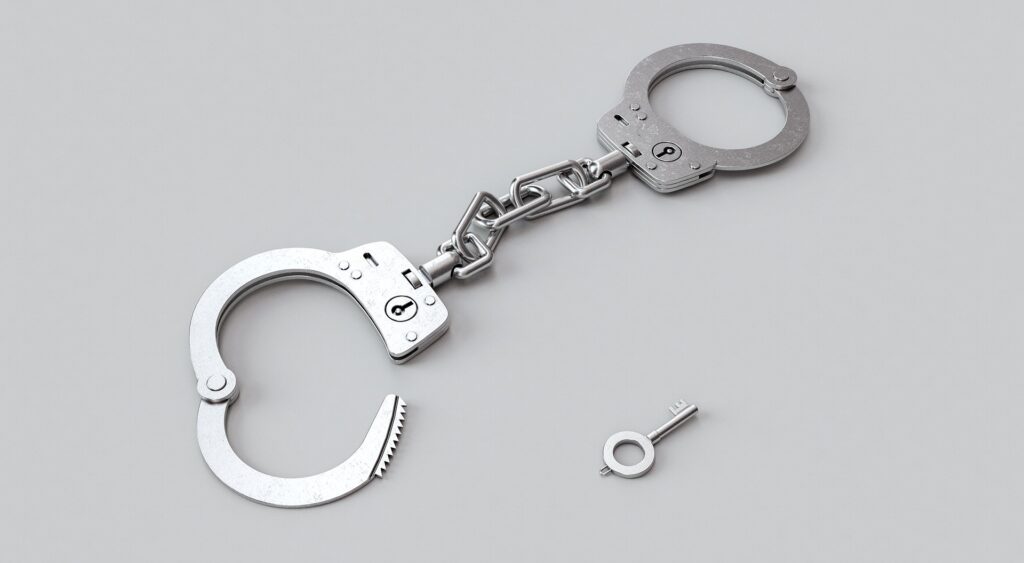The application of preventive measures is subject to many code requirements, related, inter alia, to the presence of a high probability of committing a crime or the fear of disrupting the course of proceedings. The conditions for establishing a measure, including pre-trial detention, are mostly issues subject to subjective assessment, and what is more, the facts through which they were established may become obsolete in the course of subsequent procedural steps. For example, if one of the reasons for instituting pre-trial detention was to ensure the free and fair hearing of witnesses, without the accused being able to influence their testimony, then this premise fails to a large extent after all or most of these evidentiary activities have been conducted. For the aforementioned reasons, the Code of Criminal Procedure provides for the possibility of submitting a complaint against the provisions relating to preventive measures, as well as a chance to amend or revoke them, upon request and ex officio. Naturally, they also apply for pre-trial detention.
Possibility of complaint
Depending on the procedural moment of issuing the preliminary detention order, the possibility of a complaint is governed by different provisions. They can be submitted not only for the very fact of its establishment but also for the decision to extend it.
The basic regulation in this regard is Art. 252 of the CCP. It says that a complaint may be lodged on general principles. This means that the parties to the proceedings are entitled to submit it. In preparatory proceedings, it is a suspect, victim, and having the rights of parties – a prosecutor, while in court proceedings – the accused and prosecutors – public, private, auxiliary, and auxiliary. Of course, complaints may be submitted on behalf of the parties by their attorneys and lawyers. We have 7 days to do this. The date from which this period is calculated depends on whether the interested entity was present at the announcement of the decision or not and whether the act requires its service. In the first situation – 7 days pass from the announcement, and in the following – from the delivery of the decision. The complaint should be submitted to the court that issued the decision. Then, after a positive formal control, he is transferred to the appellate instance. Consideration of the application in the event of pre-trial detention should take place not later than within 7 days of receipt of the complaint along with the necessary files by the court. It is worth pointing out that this is an instructional term, which means that exceeding it does not affect the validity or effectiveness of the decision issued after that time. As a rule, however, in such an important case from the perspective of individual rights, these deadlines are respected.
It is worth paying attention to the special situation from the perspective of exercising by an individual the right to a fair trial, which takes place when the court of the first instance rejects the motion of the prosecutor or the prosecutor to institute temporary detention, and as a result of lodging a complaint against this decision, it is established by the appeal body. According to Art. 426 § 2, in this situation we still have the option of submitting a complaint. It is held by an equal composition, of the same court that issued the decision on the basis of the submitted complaint. The rules are the same as in the case described above.
A complaint may also be lodged against the decision to extend the duration of pre-trial detention, issued by the court of appeal. He has such competence in a special situation where the authorities conducting the proceedings want to extend them for a period longer than the maximum provided for by the act. The measure will be heard by the same court, composed of three members. Again, the rules outlined in Art. 252.
The accused’s request for amendment or revocation
Another possibility of changing or revoking pre-trial detention is submitting an application in this matter. The issue is regulated by Art. 254 of the CCP. The competence described therein is vested only in the accused and the suspect, and thus also their defense lawyers. If the application concerns a change and not a repeal, then there is a chance to apply for the establishment of another preventive measure, e.g. supervision, but also a modification of the scope of an already established measure, for example – shortening the period indicated in the order. The application should be submitted to the prosecutor who conducts the preparatory proceedings, and at the court stage to the court that deals with the case. These entities should settle the matter within 3 days of receiving the request. As in the case of a complaint, it is an instructional term, which has the consequences indicated above. The legislator does not impose a deadline that must be respected by authorized entities in order to effectively submit a letter. Indicates that it can be done at any time. It is worth noting that there is no limit to the number of potentially submitted applications. The new letter does not have to meet any additional requirements, such as the occurrence of new factual findings on which the application is based. Obviously, it seems pointless to submit a letter based on the same findings and arguments to the same body, but such a possibility has not been ruled out.
In a situation where the accused does not agree with the decision made in connection with his / her request, he/she has the right to appeal against it. However, this right is subject to a special condition. The accused may appeal the decision in response to his request only if 3 months have elapsed since the decision establishing temporary detention was issued. For example, pre-trial detention was established on May 26, 2019. The application for its waiver was filed on September 1, and the court issued a decision not to allow it to be granted on September 3. In this situation, the accused may lodge a complaint as the three-month period has passed since May 26. He submits them to an equal panel of the court that examined the application. The situation is different in the preparatory proceedings. A complaint (analogically to Art. 252 § 2) against the prosecutor’s decision on the application should be submitted to the district court in whose district the proceedings are conducted.
Actions ex officio as part of temporary arrest
In the above-mentioned cases, the amendment or repeal of the measure depends on the active participation of the entity concerned. The Code also provides for a situation in which these effects may be the result of proceedings by procedural bodies taken ex officio. This obligation is expressed in article 253.
It indicates that if the reasons for which it was established cease to exist, or if new circumstances arise justifying the application of a different measure, or a failure to apply it all together, the authority is obliged to immediately adjust the legal status to the new factual state. For example, if it turns out that the legal classification of the offense charged to the suspect has been changed, for which the potential penalty is lower, and one of the main reasons for the establishment of pre-trial detention was the high penalty that will be imposed, then this is a potential reason for changing the pre-trial detention to, for example, supervision or property bail. It is worth noting that despite the establishment of an isolation precautionary measure by the court at every stage of the proceedings, the possibility described in the provision is also available to the prosecutor in the preparatory proceedings. As a rule, it is the body that at this stage conducts the proceedings or supervises them, therefore, often the information it possesses may be more detailed and up-to-date than those known to the court. Especially those related to the perpetrator’s attitude and the progress of individual activities, if it is for their benefit, pre-trial detention was chosen by all other means. As a rule, the court establishing the arrest is obliged to carry out permanent control related to the assessment of the need and purposefulness of the measure, but in practice leaving this aspect to the exclusive competence of the court would be excessively burdening. The described activities should be carried out ex officio. This does not mean that the person concerned has no way of giving the impulse to initiate action by authorized bodies. According to Art. 9 § 2, the parties or other persons directly interested may submit requests to perform an action reserved as “ex officio”. The authorities are not obliged to take the requested action, and failure to do so may not be the basis for the excessive length of the proceedings. It is an additional tool to the rights held by parties and other entities, which can only induce authorities to act in a specific way.
It is worth pointing out that in a situation where the authority decides not to extend, revoke or change the pre-trial detention into another measure, it is obliged to inform the aggrieved party and, if necessary, also the witness, e.g. when, due to the importance of his testimony, the aggrieved party may a threat to him or his family.
Summary
Pre-trial detention is undoubtedly the most severe of all available preventive measures. For this reason, the legislator regulates not only the specific procedures for its establishment but also the range of possibilities related to its amendment or revocation, which indirectly impose on the authorities the obligation to constantly monitor the position and situation of the detained person. Currently, in Poland, we can observe an upward trend in the application of this measure, with a small percentage of complaints and waivers under Art. 253 and 254. However, this does not change the fact that if there are premises for inference, it is worth taking such action. This seems to be particularly justified in the context of the observation made by the Helsinki Human Rights Organization. She pointed out that the greater the number of incoming requests and complaints, the greater the percentage of those that were positively recognized. The indicated methods allow to avoid excessive discomfort of the applied measures but also constitute control and balancing mechanisms for the competences of law enforcement agencies and the judiciary.
















